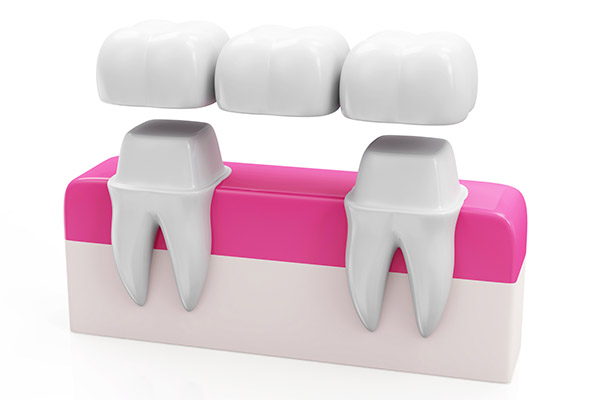What Causes Sensitive Teeth?

If you feel pain when eating cold or hot foods, then you probably have sensitive teeth. According to the Academy of General Dentistry (AGD), up to 40 million adults in the U.S. suffer from teeth sensitivity. In this article, you will learn more about some of the causes of tooth sensitivity.
Causes of sensitive teeth
Many factors are responsible for tooth sensitivity, and if you experience pain, it may be the result of any of the following reasons:
Aggressive brushing
Brushing vigorously can wear down the enamel and hurt the gums. This may prompt the constant replacement of toothbrushes. It is vital that patients learn to adjust their brushing methods to save their teeth. Brushing too hard will damage the enamel and cause gum recession, which will expose soft tissues or roots of the tooth. Over time this can also cause pain.
Receding Gums
Gum recession means the gums are shrinking away from the teeth, this exposes the dentin tubules which connect to the sensitive nerves in the tooth pulp. Receding gums do not occur due to aggressive brushing alone; the advanced form of gum diseases can cause the gums to deteriorate. Patients need to consult their dentist to get an accurate diagnosis and ensure that the recession is not the result of a more severe dental condition that requires prompt treatment.
Acidic diet
Patients who continuously feast on sour or acidic foods and drinks may be wearing down their tooth enamel. It is essential that they monitor their consumption of highly acidic foods such as tomatoes, citrus fruits, pickled products, and acidic drinks such as sports drinks, wine, orange juice, coffee, and carbonated sodas.
Sugary diet
Consuming sugary treats such as candies, cake, and ice cream can encourage bacteria growth. The acids produced by bacteria when they mix with sugary remnants can dissolve the enamel. It also leads to tooth decay, which is a significant cause of sensitive teeth.
Cracked or chipped teeth
If the tooth is chipped or cracked, the inner pulp layer may be exposed. Any contact with a hot or cold substance will certainly cause unbearable pain or sensitivity.
Treating sensitive teeth
Patients must consult their dentist if they are suffering from teeth sensitivity. The dentist will want to know the symptoms, when the pain started, and measures that provide relief. Once the dentist detects the cause of the sensitive teeth, they will provide treatment for the underlying cause.
Treatment may be as easy as filling a cavity or replacing a damaged tooth through a restoration. If the pain stems from gum recession, the dentist may recommend a gum graft procedure to protect the root surfaces and support the tooth.
Several desensitizing products are also available to block the nerve endings of exposed dentin. If the enamel has been worn down, in-office fluoride gel can help strengthen and remineralize the enamel to reduce sensitivity.
Final note
The cause of sensitive teeth varies depending on each person but ultimately, it can be determined with the help of the dentist. Therefore, if you have been coping with painful sensations that prevents you from eating your favorite food, you need to book an appointment with the dentist immediately.
Request an appointment here: https://www.dentistryforwoodstock.com or call Dentistry for Woodstock at (770) 238-1437 for an appointment in our Woodstock office.
Check out what others are saying about our services on Yelp: Sensitive Teeth in Woodstock, GA.
Recent Posts
The bridge is a dental repair that is cemented in place and is used to replace missing teeth. It is done by attaching an artificial tooth definitively to an adjacent tooth, be it natural or artificial. In most cases, crowns are artificial teeth paired with bridges. They are usually made from porcelain or blended resin.…
Are you new to the Woodstock area? Choosing a new general dentist is an important decision that can impact your long-term oral health. This dental professional provides preventive care, diagnoses dental issues, and performs essential treatments, making your dental provider an essential part of a comprehensive healthcare team.A general dentist serves as the primary care…
Do you have a missing tooth? There are various options for restoring a single missing tooth instead of several missing teeth. Read on to learn about your options. You can make the best selection for your situation if you know all the available options for replacing a lost tooth.Although leaving the lost tooth unreplaced is…
If you have lost multiple teeth, dental implants are one of the options for replacing missing teeth. This article highlights how dental implants work as a tooth replacement. Dental implants are titanium screws that are surgically implanted into the jawbone. They act as prosthetic tooth roots, securing oral restorations that replace missing teeth.Dental implants are…


